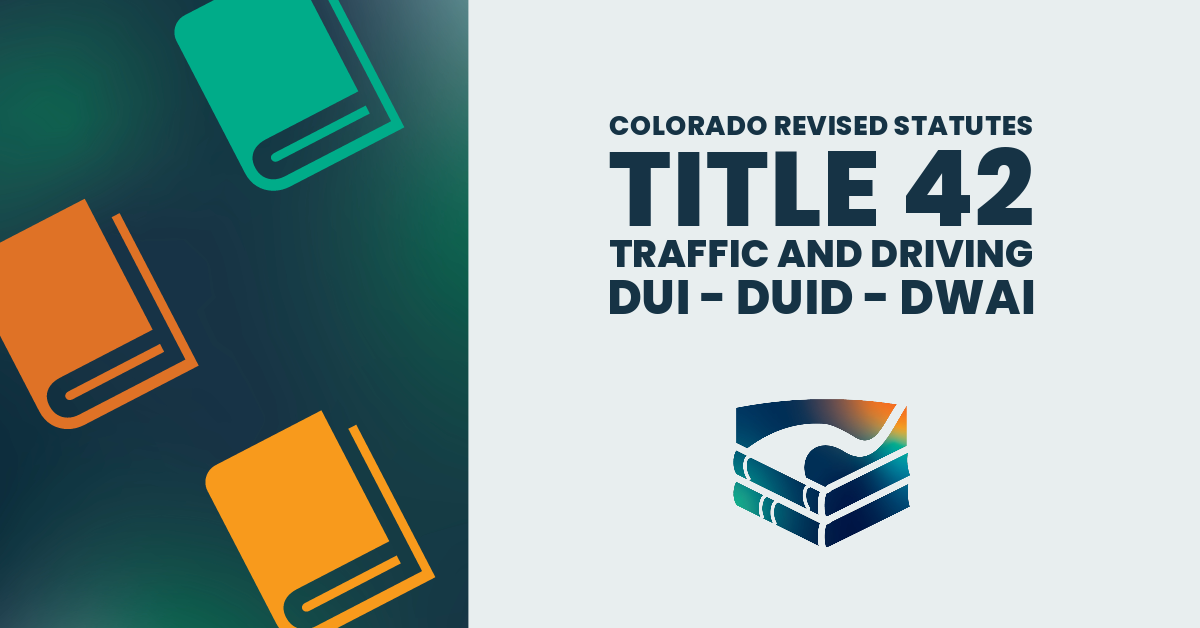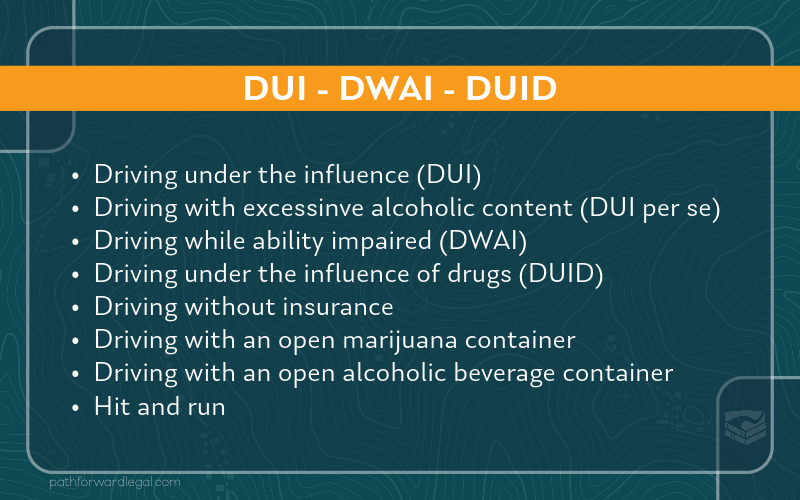Colorado organizes its criminal offenses in the Colorado Revised Statutes. Most crimes are found in Title 18 (the criminal code) or Title 42 (traffic offenses).
Though there are certain exceptions, if you are charged with a criminal case under Title 18 you will be appearing in State Court in the county where the incident happened. Misdemeanor and petty offenses are triable in county court. Felony offenses generally start in county court but are transferred to district court. Both county and district courts are “state courts,” and they are usually in the same building.
Colorado also has municipal courts that enforce municipal and traffic ordinances. Municipal courts are separate from – and in different places than – the state courts, and they have different rules.
The Colorado criminal code uses a standardized system for establishing the penalties for crimes. The legislature has set different classes or levels that correspond to the seriousness of the crimes. For example, intentional murder (Murder in the First Degree, CRS 18-3-102(1)(a)) is a Class 1 Felony, the most serious class of felony. Impersonating a peace officer (CRS 18-8-112) is a Class 6 felony, the lowest level of felony in Colorado.
There are different ways that the penalties for a crime can change from the default, or presumptive, penalty for each class. However, in general, the penalties for each class of felony is defined in CRS 18-1.3-401. The penalties for different levels of drug felonies is found in CRS 18-1.3-401.5. Sentencing for misdemeanor and petty offenses is laid out in Part 5 of Article 1.3 of the criminal code.
CRS stands for Colorado Revised Statutes. Then you will usually see three sets of numbers, divided by hyphens. The first one is the Title of the Statute section. (Our list below starts with Title 18.) The second set of numbers is the Article. The final set is the statue number. Another thing you may see is Part, which is another way that the statutes are organized within Articles.
Sometimes you will see statutes written (also called cited) by putting the numbers first, like this: 18-3-404, C.R.S. That is a different way to write CRS 18-3-404, and it means the same thing.
Table of Contents
Criminal offenses aren’t always found in Title 18 or Title 42, but most of them are. Here is a list of Colorado crimes organized by statute. (Tip: Search this page by pressing Command-F or Control-F and then typing the crime in the box that appears in your browser)

Inchoate offenses are criminal charges where the final crime has just begun or is being planned. Attempting to commit a crime, working (conspiring) with others to commit a crime, or trying to get someone else (soliciting) to commit a crime can be a crime itself.

Some of the most serious crimes fall in the category of “offenses against people.” Like the name suggests, these are crimes that are committed against a person. It is important to remember that the “victim” is not a party to the criminal charges, they are the complaining witness. The prosecutor decides when to press charges.
Article 3.5 covers actions that result in the unwanted and unlawful termination of pregnancy. These crimes cover circumstances where the harm caused by someone’s actions isn’t just to the woman.

Offenses against property involve the injury of some kind of property right. This could be because property is taken from a person, property is used without permission, or property is destroyed.
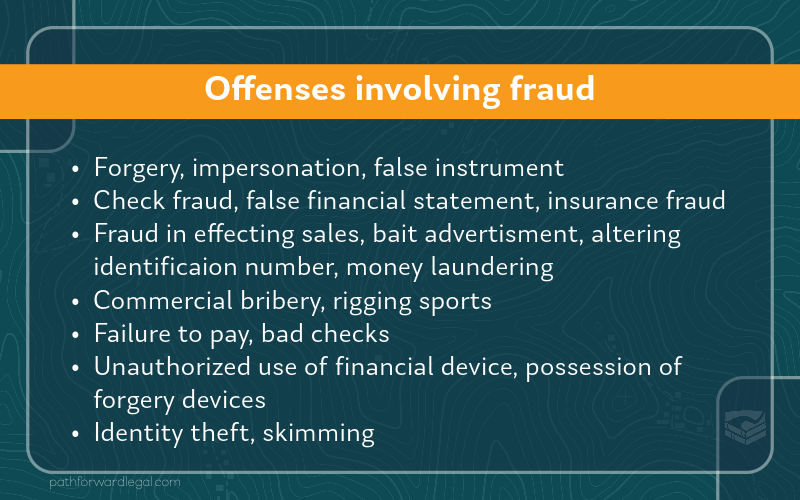
Many crimes can be committed on a computer, but there is also a special category of “cybercrime.” This charge covers actions on a computer (or phone, or tablet) that may not be covered by traditional criminal definitions.
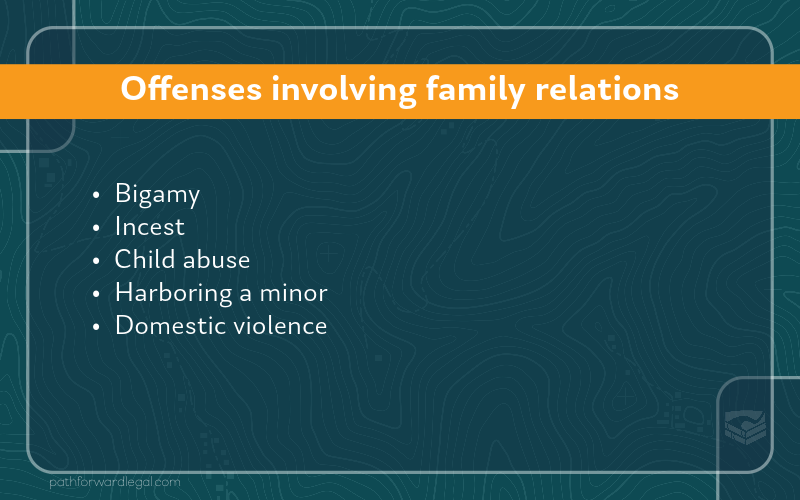
These offenses include individual crimes, like incest and child abuse, that are treated more severely because of the people involved. This section also defines domestic violence, which is an enhancer to other crimes.
Domestic violence is a sentencing enhancer, which means that it is applied to other crimes. For more information about domestic violence charges, see our guide.
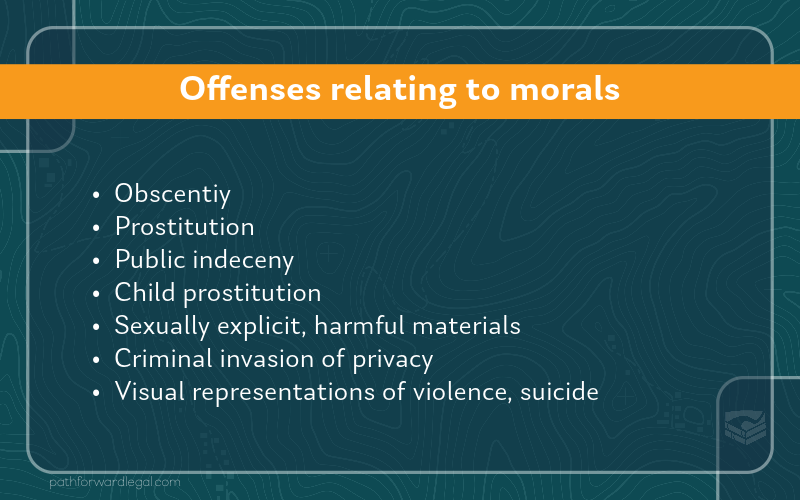
Offenses that “relate to morals” criminalize conduct that is thought to offend society and its collective values. Historically, these offenses were seen to have no “victims,” and can even have occurred between consenting adults. In more recent years, this has become the section in which Colorado has decided to locate its laws that do have victims, like child prostitution and invasion of privacy.
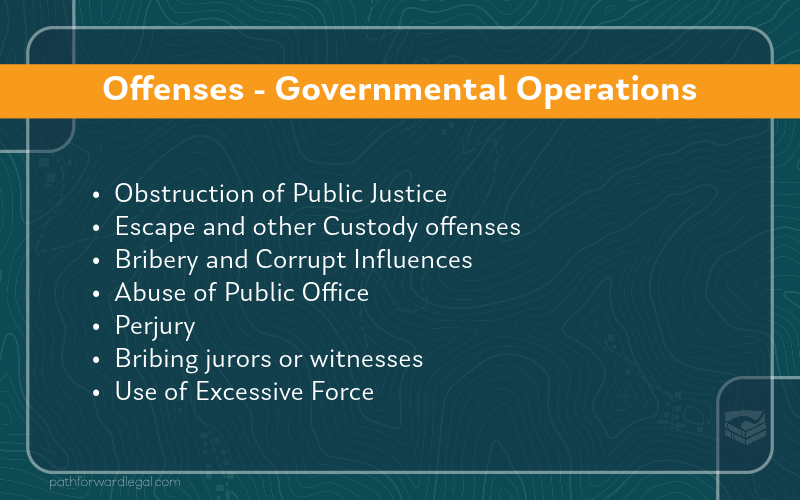
Offenses against governmental operations include actions that make the government’s job harder. This can include bribing a public official, lying under oath, and official misconduct.
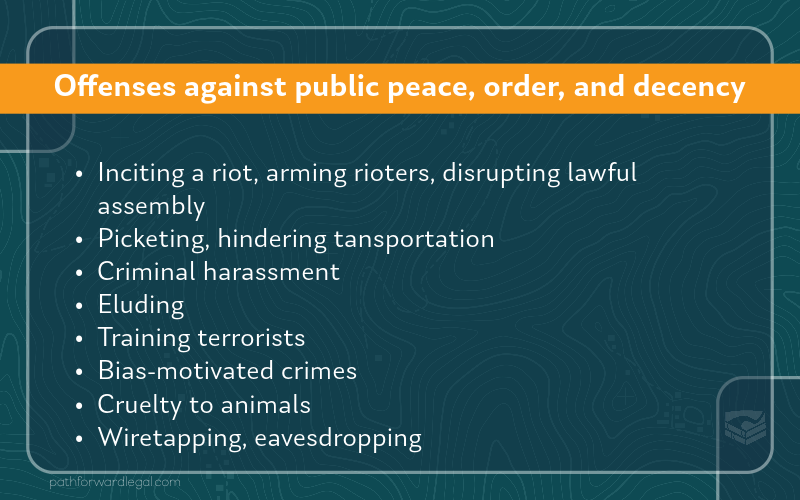
Offenses against public peace are similar to offenses against morals and government operations. This “catch-all” section includes inciting a riot, loitering, and animal fighting along with wiretapping and eavesdropping.

Firearms and weapons have their own section in Title 18. Specialized statutes include removing the serial number from a weapon, unlawful possession or use, and discharging weapons illegally.
The miscellaneous section includes offense that govern many things, including the setting of fires, secondhand sales of goods, and distribution of kratom.
COCCA is Colorado’s version of RICO (the Racketeer Influenced and Corrupt Organizations Act), whcih is a US federal law. It provides for extended criminal and civil penalties for acts performed as part of an ongoing criminal organization.

Colorado’s oft-changing drug crimes statute is in Article 18. Much like federal law, most controlled substances are defined using schedules (found in Part 2 of the Article). Offenses are defined in Part 4.
Though gaming (or gambling) is allowed in Colorado, it is highly restricted. Article 20 criminalizes violations of the gaming statutes and other acts related to limited gaming.
Colorado has criminalized friend-groups and neighborhood associations when the police decide that the group is a “criminal street gang.”
